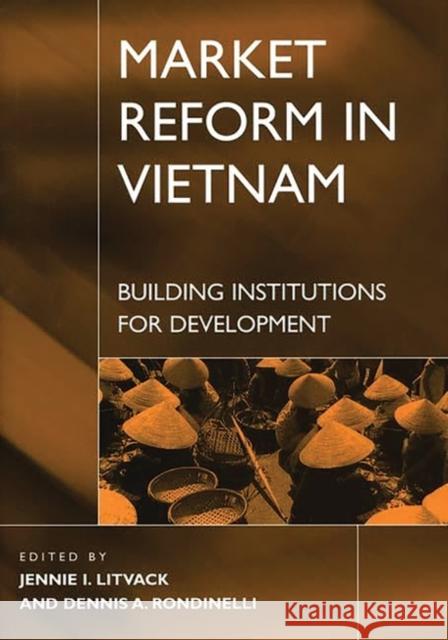Market Reform in Vietnam: Building Institutions for Development » książka
Market Reform in Vietnam: Building Institutions for Development
ISBN-13: 9781567202885 / Angielski / Twarda / 1999 / 216 str.
In this up-to-date, authoritative overview of where economic and social reform now stand in Vietnam, the contributors discuss the progress the country has made toward establishing a market-oriented economy. By focusing on the institutions needed to transform a centrally-planned economy into one oriented toward world markets and trade, the book gives business-people an insight into the potential rewards and risks they may find in their efforts to do business in, and with, Vietnam. It brings together the perspectives of economists, sociologists, political scientists, fiscal and financial experts, and business and public administration specialists--all of whom provide background essential for an understanding that the prospects are for a mutually beneficial business relationship between Vietnam and the rest of the world.
Vietnam's economy has grown rapidly since its government introduced economic renovation policies (doi moi) in the late 1980s. Although still extremely poor, Vietnam is on its way to becoming an emerging market economy, but investors have become concerned that its strong performance cannot be sustained. Despite doi moi's success in stimulating structural changes, a wide range of market-oriented institutions must still be developed, if Vietnam is to maintain macroeconomic stability and broad-based growth. Without that, its growth could become narrow and urban centered, and this would have profound negative implications for the reduction of poverty, the pace of urbanization, and Vietnam's ability to manage urban congestion.
The editors and their contributors address issues of institutional development as the key to continuing Vietnam's successful transition to a market economy and to improve the welfare of its people. Among the book's themes are the need to clearly define the complementary roles of the public and private sectors, and the need to strengthen the government's capacity to perform its unique functions effectively. Economic policies that provide the incentives for investment and production are a necessary, but not sufficient, component of the development process. The volume clearly shows that what is going on in Vietnam is relevant to most developing countries, and that these processes are of crucial concern to international business-people.











